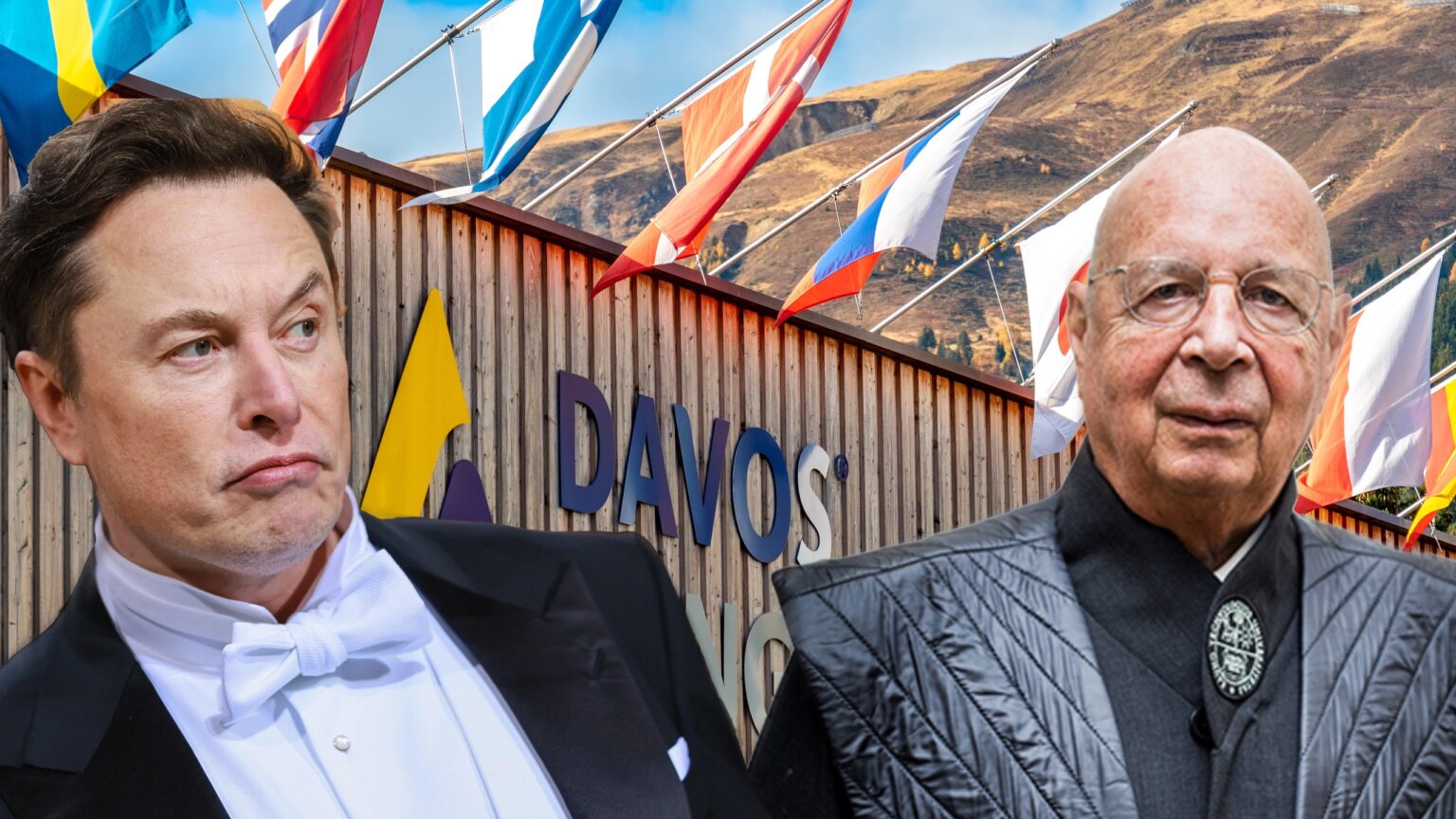Twitter CEO Elon Musk may have turned down a Davos invite, per his contested claim, but he did not necessarily sit out the proceedings. The chief twit has been chatty about this year’s edition of the World Economic Forum (WEF), questioning its legitimacy as the talking shop for solutions to global problems.
“WEF is increasingly becoming an unelected world government that the people never asked for and don’t want,” Musk tweeted. He was responding to a video of World Economic Forum founder Klaus Schwab and other high ranking officials discussing the organization’s new “Global Collaboration Village.”
On day one of the event, Musk sarcastically responded to a buzzword, “‘Master the Future’ doesn’t sound ominous at all,” and added, “How is WEF/Davos even a thing? Are they trying to be the boss of Earth!?” This year’s meetings ran from Jan. 16 – 20.
WEF is increasingly becoming an unelected world government that the people never asked for and don’t want
— Elon Musk (@elonmusk) January 18, 2023
Musk criticizes WEF global agenda
Musk’s criticism of the Davos is an extension of his criticism of institutional opacity. The Twitter Files, a retrospective look into the tech behemoth before Musk’s takeover, includes revelations that the company ranked right-leaning tweets lower without making this information available to users.
Musk, a self-styled “free-speech absolutist”, has posed as the broom of the system since he started his hostile bid for Twitter. He demanded transparency from the company not just for his own due diligence but for Twitter users. The billionaire has also accommodated dissenters on Twitter in symbolic correction of mute-happy Meta platforms and others.
Also read: Twitter Q4 Revenue Tumbles 35% as 500 Advertisers Suspend Spending
Making good on his transparency crusade from the helm of his new acquistion, he recently announced, “Twitter will publish tweet recommendation code and make account or tweet status visible no later than next month. Transparency builds trust.”
WEF, known by its Davos synecdoche, is a gathering of global who’s who, meeting annually to discuss solutions to world problems, including the ecological crisis and the social aspects of new technology. While it is made up of unelected leaders, as Musk points out, the guest list is remarkable for its star power, including heads of state and tech magnates.
Davos’ emphasis on global cooperation, everyone speaking like they are walking on egg shells, may also account for the mercurial billionaire’s dismissiveness. Musk is known for speaking his mind, however unpalatable. Like many businesspeople at home with the bare-knuckle language of competition rather than diplomacy.
“Master the Future” doesn’t sound ominous at all … 🙄
How is WEF/Davos even a thing? Are they trying to be the boss of Earth!?
— Elon Musk (@elonmusk) January 17, 2023
In the heat of corporate rivalry, Musk has savaged Davos’ upcoming “Global Collaboration Village” in the metaverse powered by Meta. WEF founder Schwab’s announcement of Interpol’s contribution to the security side of the Global Collaboration Village does not help.
That’s given the so-called tech-intelligence complex whereby major technology companies are accused of back-channeling user data to security agencies, particularly in the U.S and China (The Permanent Record, Edward Snowden, 2019).
Parallels between Big Tech monopoly and WEF
As he angled towards his Twitter takeover, Musk said he wanted to push the company towards free expression and questioned permanent bans and content restrictions.
To hear Musk tell it, in having content “mysteriously promoted or demoted with no insight into what’s going on”, Twitter was failing the transparency test. It includes the erstwhile secrecy around the identities of the makers of such decisions.
This goes for the other tech companies whose drive to moderate content also unilaterally and unaccountably amplified their power over speech. Davos may well spell a parallel, a talking shop of the powerful deciding the direction the world should take without consulting or representing the people they speak for.
“Having a black box algorithm promote some things and not other things, I think this can be quite dangerous,” Musk said of Twitter, an analogy which may well hold against mega-rich and mega-powerful clubs calling the shots.
In defense of the WEF, while it can be characterized as a high-powered exclusive club, it is also the place where the “big boys” get to interface with activists and lobbyists supposedly from the grassroots and alternative campaigns.
Populist posturing
Elon Musk’s call for Twitter to publish its code on Github was classic Tesla. In 2006, he published “The Secret Master Plan of Tesla” detailing his strategy to make affordable self-driving cars a reality. In 2014, he also published Tesla patents.
However, his critics cite his prolific use of non-disclosure arrangements and punishing of vehicle safety whistleblowers like former employee Cristina Balan as a proof of double standards.
His handling of Twitter Files has also been criticized as populist posturing against the former leaders which may well be a decoy away from his own opaque and individualized decision-making.
The World Economic Forum should control the world
— Elon Musk (@elonmusk) January 18, 2023
Klaus Schwab founded the World Economic Forum in 1971. Elon Musk ran a poll on Twitter asking users whether the WEF should control the world. Over 2.42 million people voted and an overwhelming majority of 86% voted “No”.









 and then
and then